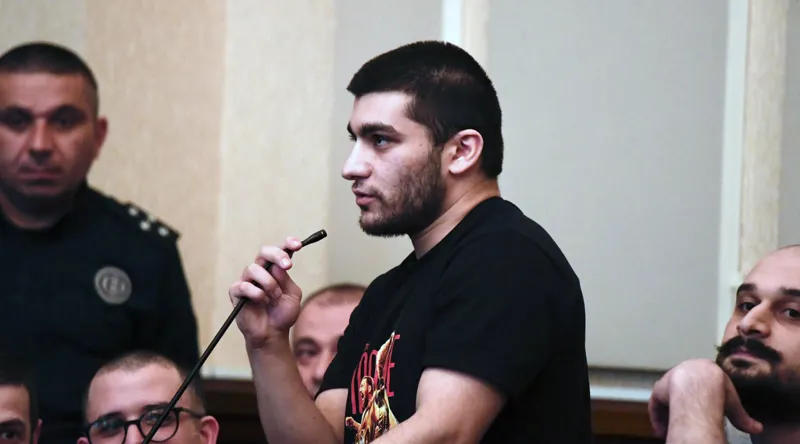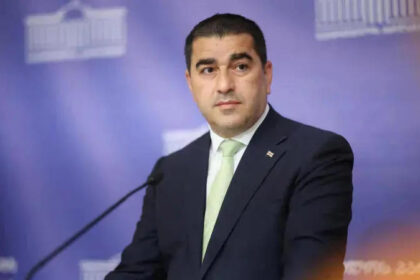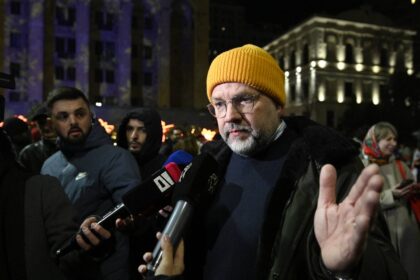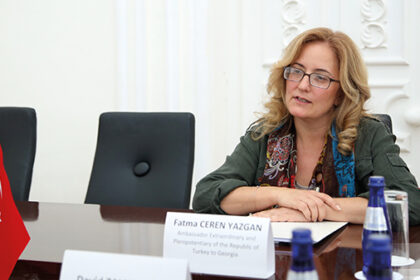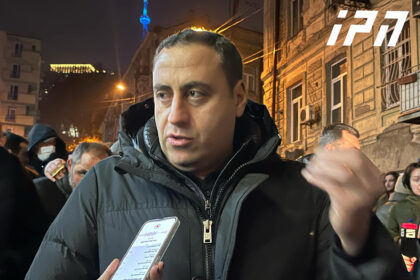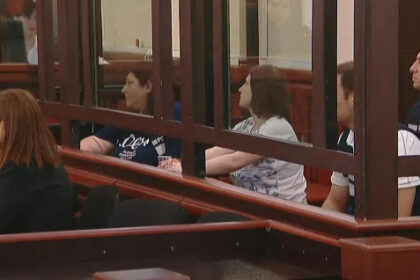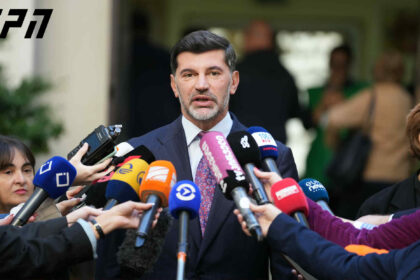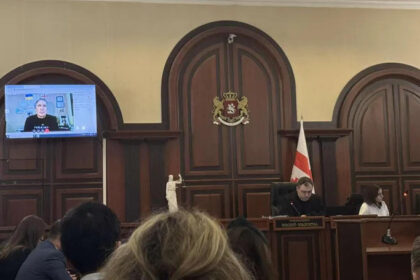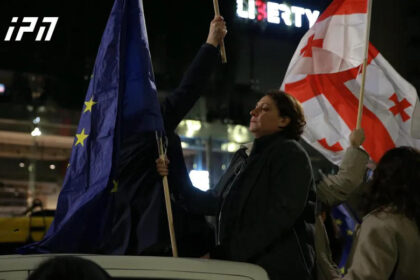“Tomorrow, as a sign of protest, I will not attend the court,” Rezo Kiknadze, who was detained during the protests near the Parliament, writes in a letter he is disseminating from prison.
In his lengthy letter, Kiknadze states that he has one request for the court: when announcing the sentence, they should specify exactly who did what wrong. “I demand a name and surname, who did I harm,” he writes.
Kiknadze refers to the case prosecutors as “the devil’s prosecutors” and addresses them: “One day, when we get out of prison—are you ready for that, prosecutors?”
“Anton’s eight years crushed me; I didn’t even feel our two years. Not two years, not even two days were deserved, so everyone, come out. I can endure twenty years if the country needs it, but so much arbitrariness cannot be accepted as normal. Tomorrow, as a sign of protest, I will not go to court. What I was supposed to say tomorrow, I’ll write here instead.
I have one request: when you announce the sentence, tell us specifically who did what wrong. I demand a name and surname, who did I harm. Generally, if someone damaged a building, looted a store, or hit someone on the head, that doesn’t concern me, and don’t attribute someone else’s crime to me. However, everyone has the right to protest, and the crime lies only with those who suppress this protest. Accordingly, for me, neither a broken window nor a burned trash bin is a crime, but I didn’t even commit those – fact.
Before they arrested me, a while earlier, I was watching the movie “The Devil’s Advocate”. Together with the lawyer, we were discussing general human issues. The dilemma was as follows: does being a good lawyer and professional give you the right to defend a criminal, a murderer, or even the devil? On one hand, you serve your profession and are obliged to perform your duties diligently. And when you haven’t lost a single case and are the best, there shouldn’t be anything wrong with that. But on the other hand, if, thanks to your highest professionalism, a murderer is released and acquitted, aren’t those murders on your conscience, committed because you got the murderer acquitted?
And how does this relate to us? Our lawyers, on the contrary, defend those persecuted by the devil. Here, instead of a lawyer, we should put the prosecutor. We have the devil’s advocates. Shouldn’t a person refuse to do everything, even if their job requires it? Should you also represent the interests of traitors and those who sell out the homeland? If they were filming the movie now, Keanu Reeves would play the role of the devil’s prosecutor, based on our prosecutor’s example.
Now, when you do everything under your government’s orders to arrest innocent people and go to extremes, are you ready to take responsibility for the murders that follow because of you? For the family members who suffer worrying about us? For the people who will be unjustly arrested in the future because our arrests went unpunished? Justice was not served, and when someone snaps their fingers, even the court operates on that snap. What will be the consequence of turning honest people, who have never broken the law in their lives, into villains? One day, when we get out of prison—are you ready for that, prosecutors?
At what cost is it worth serving the devil? Remember one thing well: a prison has two doors, and a person doesn’t come out the same as they went in, but they do come out.
Vazha, when I look at you, you remind me of one of Dostoevsky’s works—not by content, but by title. No matter what you do now, you will remain the devil’s prosecutors for the rest of your lives. You can’t take anything away from us; just think about our parents and family members. In the end, I wanted to conclude by saying that Abkhazia is Georgia, and Samachablo is Georgia.
The funniest thing is that our charge, even the reclassified one, includes ‘group activity.’ You haven’t sentenced us; you’ve sentenced yourselves. How did Javakha face his sentence? When he entered the cell, we sang ‘Ole Ola,’” writes Rezo Kiknadze.
Rezo Kiknadze: As a sign of protest, I will not go to court. I have one request: when you announce the sentence, tell us who and what I wronged; I demand a name and a surname – whom did I harm? The verdict is not against us, but against yourselves
